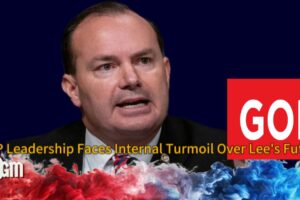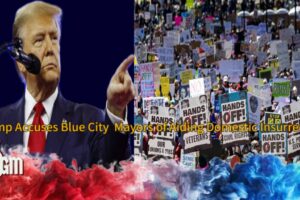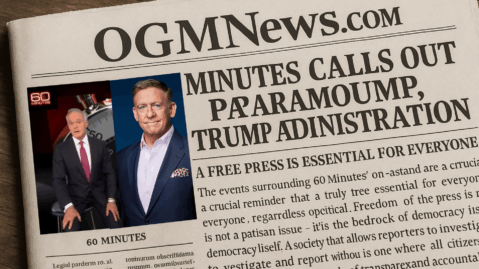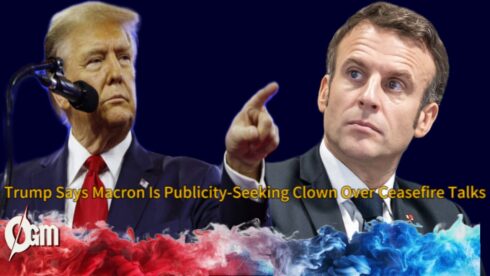On April 27, 2025, CBS’s 60 Minutes concluded its broadcast with a moment that shocked and inspired viewers across the country. In an extraordinary on-air statement, anchor Scott Pelley directly addressed the resignation of executive producer Bill Owens, framing it as a powerful protest against the erosion of editorial independence at the network.
Pelley’s remarks made it clear: Owens’ departure was not over a single editorial dispute, but over a broader concern that journalistic autonomy at 60 Minutes was being subtly but steadily compromised. Correspondent Lesley Stahl echoed this sentiment, revealing her own experiences with what she termed “editorial interference” — an increasingly common phenomenon in an era where corporate mergers and political pressure collide with journalism.
The segment was both a rare moment of media introspection and an unapologetic defense of the principle that the free press must remain free — from both government and corporate manipulation. The decision to air such a statement, especially given Paramount’s looming merger with Skydance Media, signaled that at least some within CBS were unwilling to quietly surrender the independence that defines serious journalism.
60 Minutes Highlights The Paramount-Skydance Merger As Cause
At the center of the brewing storm is the pending merger between Paramount and Skydance Media — a multibillion-dollar deal that cannot move forward without approval from the Trump administration. Several reports suggest that increased corporate oversight at CBS, including subtle pressures on 60 Minutes, may be linked to Paramount’s desire to avoid political obstacles in the merger process.
According to Axios and The Daily Beast, Shari Redstone, Paramount’s controlling shareholder, has shown a strong interest in settling President Trump’s $20 billion defamation lawsuit against CBS News. Trump’s lawsuit accuses the network of deceptively editing a 2024 interview with then–Vice President Kamala Harris. Settling the case could remove a significant hurdle for regulatory approval of the merger, but at a potentially devastating cost to editorial independence.
While Pelley made clear that no individual story had been outright “killed” by Paramount, he stressed that Owens felt his ability to operate without undue influence had been fundamentally undermined — a warning sign that should concern anyone who values independent journalism.
Trump’s Expanding War on Journalism
Almost immediately after 60 Minutes’ powerful segment aired, former President Donald Trump escalated his attacks on the press. In a public address the following day, Trump threatened legal action against media organizations that publish polling data unfavorable to him, suggesting — without evidence — that such polls constitute “election fraud.”
Specifically targeting The New York Times, ABC News, and other outlets, Trump railed against recent polls showing him with poor approval ratings, claiming that journalists responsible for disseminating these polls should be “investigated.” His comments mark a new, chilling front in his long-running battle against critical media coverage — one that could lead to a direct assault on political polling and reporting itself.
Trump’s rhetoric not only threatens individual journalists but undermines public trust in objective data and free discourse, key elements of any functioning democracy. As history has shown, efforts to silence or criminalize dissenting journalism are the first steps toward authoritarianism.
The Looming Danger of Corporate Capitulation
The 60 Minutes controversy highlights a growing danger: the willingness of major media corporations to capitulate under political pressure. Reports indicate that Paramount is actively scrutinizing 60 Minutes reporting practices, raising fears that critical journalism could be sacrificed to smooth the path for financial deals.
When corporations prioritize merger approvals and profits over editorial freedom, the press ceases to function as a check on power. It becomes instead an instrument of those in authority — a scenario that should alarm citizens across the political spectrum.
If Paramount bows to Trump’s demands, either through editorial concessions or legal settlements, it would not only betray its journalists but also deal a severe blow to press freedom at a critical moment in American history. As Axios noted, maintaining journalistic independence is not merely a business decision; it is a civic duty.
FCC Weighs In: Merger Approval Now Under Scrutiny
The Federal Communications Commission (FCC) has also taken note of the troubling developments. FCC Chairman Brendan Carr stated that “all options are on the table” as regulators consider the Paramount-Skydance merger. The commission is reportedly weighing the allegations of editorial interference and the potential implications for public trust in media companies operating under federal licenses.
Carr’s comments suggest that the FCC may not rubber-stamp the merger without a thorough investigation into the broader impact on journalistic independence. Although the FCC traditionally does not regulate content decisions, the integrity of news divisions at broadcast license holders remains a critical part of its public interest mandate.
The situation presents a rare opportunity for regulators to assert that democracy depends on a genuinely free and fearless press — and that media conglomerates cannot expect government favors if they abandon that principle.
Freedom of the Press: A Nonpartisan American Value
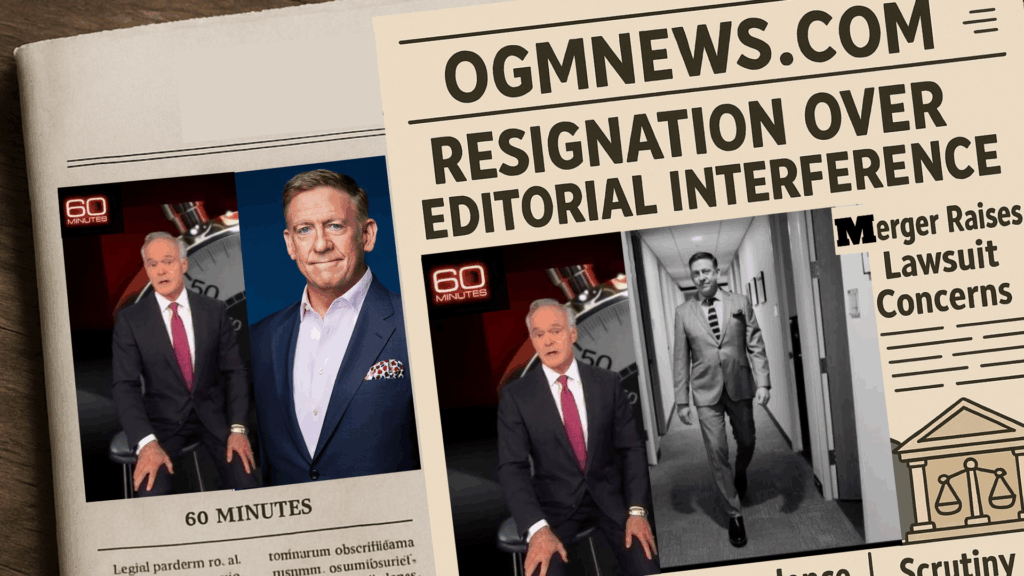
The drama surrounding 60 Minutes, Paramount, and Trump underscores a fundamental truth: freedom of the press is not a partisan issue. It is the bedrock upon which democratic society is built, ensuring that citizens can hold those in power to account, regardless of political affiliation.
As Scott Pelley aptly noted during the broadcast, a free press shines a light into the dark corners where corruption might otherwise fester. If journalism becomes beholden to political leaders or corporate bosses, democracy itself is imperiled. Citizens, whether they lean left, right, or center, have a vested interest in defending the independence of the media.
A democracy where journalists fear political retaliation or corporate discipline is a democracy living on borrowed time. If truth must answer to power, then freedom is already lost.
The Road Ahead for 60 Minutes and Free Press: Journalists Must Not Retreat
Despite the threats and pressures, many journalists — from national anchors to local reporters — remain steadfast in their commitment to truth-telling. “I’m not going anywhere, even if they come after me,” Pelley stated, voicing a defiance that resonates with many in the media industry today.
The stakes are clear: if mainstream media outlets capitulate to pressure and begin censoring unfavorable news — including poll numbers, investigations, and critiques — then the principle that journalism serves the public, not the powerful, will be fatally compromised.
It is now up to journalists, media executives, regulators, and the public to insist that the press remain independent, fearless, and free. The health of American democracy depends on it — and history will not judge kindly those who choose the comforts of silence over the courage of truth.





